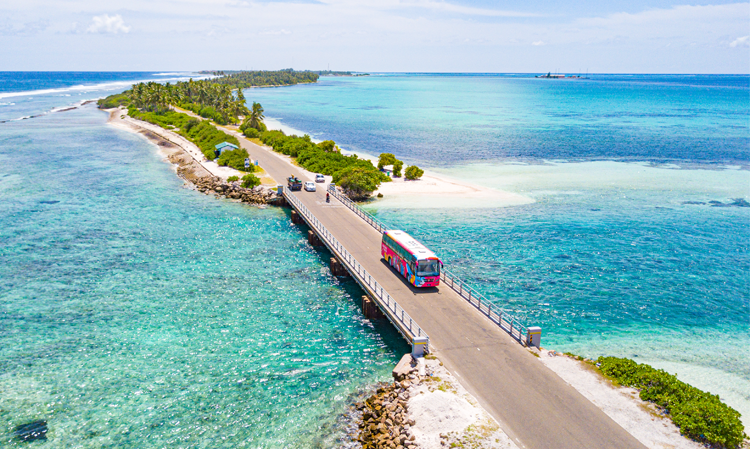Addu City, Maldives – The first ever utility scale battery energy storage system in Maldives, has been installed in Addu City.
The Ministry of Environment, Climate Change and Technology tweeted saying that the pre commissioning works of 1MW Battery Energy Storage System (BESS) and Energy Management System (EMS) in Addu City is currently in progress.
The Ministry also stated that Addu City already has a 1.6MWp utility scale Solar PV system and a number of Home Solar Systems installed. They added that commissioning this Battery Energy Storage System and Energy Management System will ensure 24 hour uninterrupted power to the community.
Furthermore, the Ministry assured that once the project is completed, it will help to stabilize the power system and will allow more Solar PV to be connected to the grid.
Tweeting on the topic, Environment Minister Aminath Shauna stated that this was Maldives’ First utility scale battery energy storage system installed in Addu City and pointed out that this was an important milestone in the countries’ journey to transition to solar power.
From the total population of more than 500,000, about a quarter lives in the capital city of Male while the rest reside in more than 190 islands. As of 2018, there are about 240 megawatts (MW) of installed diesel-based generation capacity on the inhabited islands, out of which approximately 135 MW is in the Greater Male region, which comprises Male and neighboring islands.
Given the geographic spread, each island is electrified with its own diesel-powered grid system, resulting in expensive and not very reliable supply. The cost of diesel power is unaffordable at 30 cents to 70 cents per kilowatt-hour (depending on the island) and requires government subsidies in excess of $40 million annually. Electricity-related subsidies are also a focus area for more robust management of government expenditures.
BESS uses battery technology to store energy for use later. It is supported by computer-aided tools used by operators of electric utility grids, including microgrids, to monitor, control, and optimize the performance of the generation and/or transmission system.
The problem was more serious in Addu with a population of over 23,000, one of the five locations where solar photovoltaic-diesel hybrid solutions were being applied under Phase 1 of the project. The large urban area has the major modern infrastructures such as an airport, large harbor facilities, a school up to university grade, and a tourist industry. It was expected to be the project site with the highest impact. Phase 1 was successfully completed and connected to the grid. It achieved reductions in the leveled cost of energy, which measures the present value of the total cost of building and operating a power plant over an assumed lifetime.





